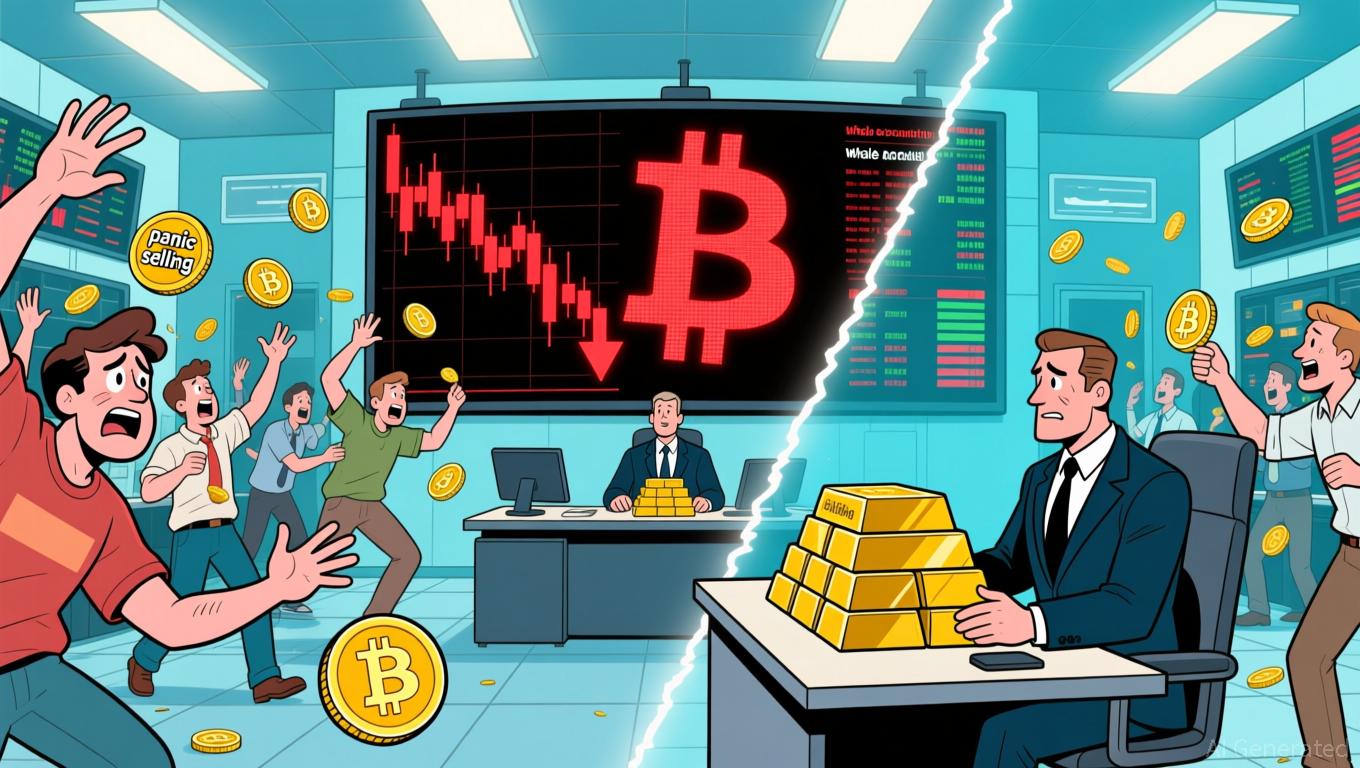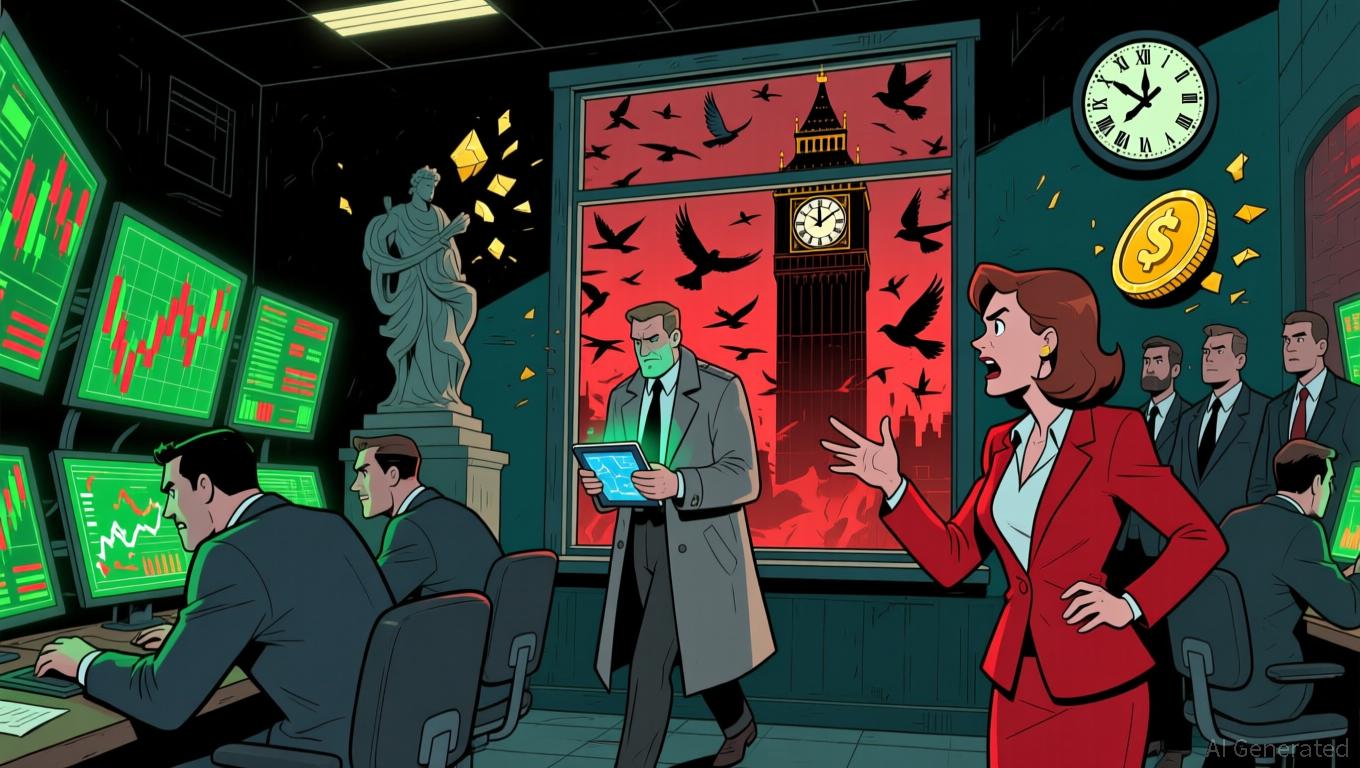Bitcoin Updates: Turning Point or Opportunity? Recent STH Bitcoin Sales Signal Upcoming Bull Market Rebound
- Bitcoin's recent price drop below $100,000 triggered mass capitulation as short-term holders (STHs) dumped 148,000 BTC at a loss in 48 hours. - Institutional outflows worsened the sell-off, with $866.7M in Bitcoin ETF redemptions on Nov 13, led by Grayscale and BlackRock . - Long-term holders sold 815,000 BTC since Jan 2024, but whale wallets absorbed 45,000 BTC weekly, signaling potential market rebalancing. - Technical indicators show Bitcoin testing $94,000 support, with STH selling risks pushing pric
The latest decline in Bitcoin's price has brought increased attention to short-term investors, as data reveals these traders have been selling off large amounts of their coins during the broader market slump.
Institutional outflows have further intensified the sell-off, especially from Bitcoin ETFs. On November 13, spot Bitcoin ETFs saw net redemptions totaling $866.7 million,
At the same time, long-term holders (LTHs) have also been selling, though at a slower rate. Over the past month,

Technically, the market remains vulnerable. Bitcoin's price has been moving within a downward channel,
Institutional sentiment, however, is mixed.
The ongoing tension between retail selling and institutional buying may signal a turning point.
Disclaimer: The content of this article solely reflects the author's opinion and does not represent the platform in any capacity. This article is not intended to serve as a reference for making investment decisions.
You may also like
Bitcoin News Update: PENGU Faces a Price Showdown: Balancing Market Stability and Ecosystem Expansion
- PENGU token, Pudgy Penguins' governance token, trades near $0.012 after 5% weekly decline, with traders eyeing a potential rebound toward $0.023. - Projected 2030 growth to $35–$180 hinges on ecosystem expansion in gaming/metaverse and brand partnerships driving token utility. - Broader crypto market weakness, including Bitcoin's $95k slump and $867M ETF outflows, pressures PENGU amid heightened bearish sentiment. - Key factors for PENGU's trajectory include NFT floor price stability, institutional crypt

Hyperliquid News Today: Hyperliquid's Reduced Fees Ignite Growth in DeFi's Overlooked Sectors
- Hyperliquid launches HIP-3 Growth Mode, slashing trading fees by over 90% to boost liquidity in niche assets and challenge centralized exchanges. - The permissionless framework allows deployers to activate ultra-low taker fees (as low as 0.00144%) while preventing parasitic volume capture through 30-day fee locks. - With $10B+ daily volume and infrastructure advantages like HyperBFT, the platform aims to attract liquidity providers to emerging markets despite past bad debt risks. - Analysts highlight the

Bitcoin News Today: Bitcoin Plunges 25%—Is This a Deleveraging Shakeout or a Warning Sign for a 2026 'Tariff Wave'?
- Bitcoin fell below $95,000 on Nov. 14, 2025, a 25% drop from October's peak amid macroeconomic uncertainty and institutional outflows. - ETFs saw $866.7M in net outflows, led by BlackRock and Grayscale, as investors shifted to cash, bonds, and gold . - Fed rate cut expectations dropped to 30%, technical indicators showed bearish "death cross," and Treasury yields pressured risk assets. - Market fear reached pandemic-level lows (Fear & Greed Index at 10), though ETF outflows remain small relative to $80B

Hyperliquid News Today: The escalating AI chip conflict between the U.S. and China drives a spike in trading activity and deepens divisions in international markets
- Alpha Arena's 1.5 season introduces Kimi 2 model for live U.S. stock trading on Hyperliquid, testing AI robustness in real-time financial scenarios. - Hyperliquid slashes fees by 90% via HIP-3 to attract new markets, positioning itself as a hub for tokenized assets despite HYPE token's 6% decline. - U.S. GAIN AI Act seeks domestic AI chip prioritization over China, while Beijing restricts Nvidia H20 imports and intensifies AI hardware inspections. - Geopolitical tensions over semiconductor access risk gl
